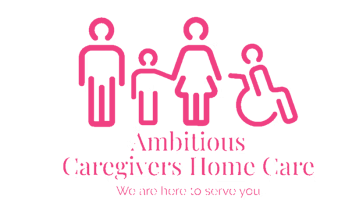Introduction
In today’s busy world, more and more families are discovering the comfort and convenience of Pediatric Nursing Servicesoffered right in their own homes. Whether a child is recovering from surgery, managing a chronic illness, or requires ongoing medical attention, in-home care is proving to be a gentle yet effective solution.
So why exactly are parents moving away from traditional hospital settings and turning to these at-home alternatives? The answer lies in personalized care, emotional support, and peace of mind things that every parent wants for their child.
Understanding Pediatric Nursing Services
Names of pediatric nursing services vary depending on whether they are institute care or Home care services for children and families in the United States. These services are individualized for each child and may include short-term recuperation or long-term care needs.
The primary emphasis is on compassionate care through treatment within the familiar and comforting atmosphere that enables the child to heal, grow, and thrive.
What Pediatric Nursing Services Include
1. Medication Management
Children with chronic conditions often need medications administered on a regular schedule. Pediatric nurses ensure:
- Timely administration of prescribed meds
- Monitoring of side effects
- Accurate dosage adjustments in consultation with doctors
This reduces the burden on parents and ensures proper care.
2. Monitoring Vital Signs and Medical Equipment
Many kids need ongoing monitoring for conditions like respiratory issues, seizures, or heart defects. Pediatric nurses are trained to:
- Monitor heart rate, oxygen levels, and blood pressure
- Operate and maintain medical devices like feeding tubes, IVs, and ventilators
- Identify signs of complications early
Having this care at home avoids frequent hospital trips and minimizes disruptions to the child’s routine.
3. Post-Surgical and Wound Care
After a surgery, children need regular care and observation to heal properly. Nurses help with:
- Cleaning and dressing surgical wounds
- Preventing infections
- Assisting in rehabilitation and mobility support
This promotes faster healing in a low-stress setting.
4. Respiratory Therapy
Children with asthma, bronchopulmonary dysplasia, or other respiratory problems benefit greatly from regular respiratory therapy at home. Pediatric nurses:
- Administer nebulizer treatments
- Teach families how to use inhalers or oxygen therapy
- Monitor progress and adjust routines as needed
It’s a game-changer for families trying to manage lung-related conditions long-term.
5. Nutritional and Feeding Support
If a child needs help with feeding whether through a G-tube, IV nutrition, or specialized diet a pediatric nurse ensures:
- Proper feeding technique
- Monitoring for digestion issues
- Ensuring the child receives adequate nutrients for development
Proper nutrition is essential, and this type of support goes beyond what most families can handle alone.
Emotional and Developmental Benefits of At-Home Pediatric Nursing
Beyond the medical side of things, Pediatric Nursing Services offer real emotional and developmental benefits.
- Children feel more relaxed and secure in their familiar environment
- Parents have direct communication with care professionals
- Siblings stay involved and informed, helping reduce family stress
- Nurses often help track developmental milestones and provide resources
These human touches go a long way in supporting not just the child but the entire family unit.
Who Can Benefit From Pediatric Nursing Services?
Families often assume this type of care is only for severely ill children, but in reality, Pediatric Nursing Services help in a wide range of situations:
- Premature babies needing home support
- Children with autism or developmental delays
- Post-operative patients
- Kids with long-term diseases like epilepsy, diabetes, or muscular dystrophy
If your child needs frequent medical attention, chances are in-home nursing may be an option.
Parents’ Growing Trust in At-Home Pediatric Nurses
So what’s it with that significant change to Pediatric Nursing Services? Trust and loyalty are the main factors. A lot of parents think that they have a greater part in their child’s care, and the children, on their side, get along with only one-on-one attention.
At the same time, pediatric nurses that job in-house, for instance, have, most of the time, long-term relationships with the children that they look after, which, in case of rotating shifts in hospitals, can be quite difficult to realize.
The Local Option: GAPP Pediatric Nursing Services
For families in Georgia, GAPP pediatric nursing services (Georgia Pediatric Program) provide reliable, Medicaid-funded home care for children who are medically fragile. This program grants families professional nursing free of charge for a limited number of hours if they qualify thus making quality in-home care more affordable than ever.
GAPP pediatric nursing services area lifeline for parents who are juggling work, home, and medical care. With the presence of experienced nurses, your child can get expert-level support in a peaceful and loving home environment.
Conclusion
At the end of the day, Pediatric Nursing Services are more than just a medical convenience they’re a way to support your child’s health, development, and happiness without leaving your front door. They empower parents, reduce hospital dependency, and allow children to receive care in the place where they feel safest home.
As more parents recognize these advantages, in-home care is quickly becoming the first choice, not the last resort. If you’re looking for compassionate, expert support tailored to your child’s needs, in-home Pediatric Nursing Services might just be the answer you didn’t know you were looking for.
FAQs: Pediatric Nursing Services at Home
Q1: Are in-home pediatric nurses as qualified as hospital nurses?
Absolutely. Pediatric home nurses are licensed, trained professionals, often with hospital experience. They meet strict state and national certification standards.
Q2: Is pediatric nursing at home covered by insurance?
In many cases, yes. Especially when ordered by a doctor, insurance and Medicaid may cover part or all of the service. Families should contact their provider to confirm.
Q3: How often do pediatric nurses visit the home?
It varies. Some may come daily, others a few times a week, or even provide 24/7 care depending on the child’s condition and care plan.
Q4: What should I look for in a pediatric nursing agency?
Look for agencies with good reviews, proper licensing, and a focus on family-centered care. Ask about nurse training, emergency protocols, and whether they offer backup staff.








